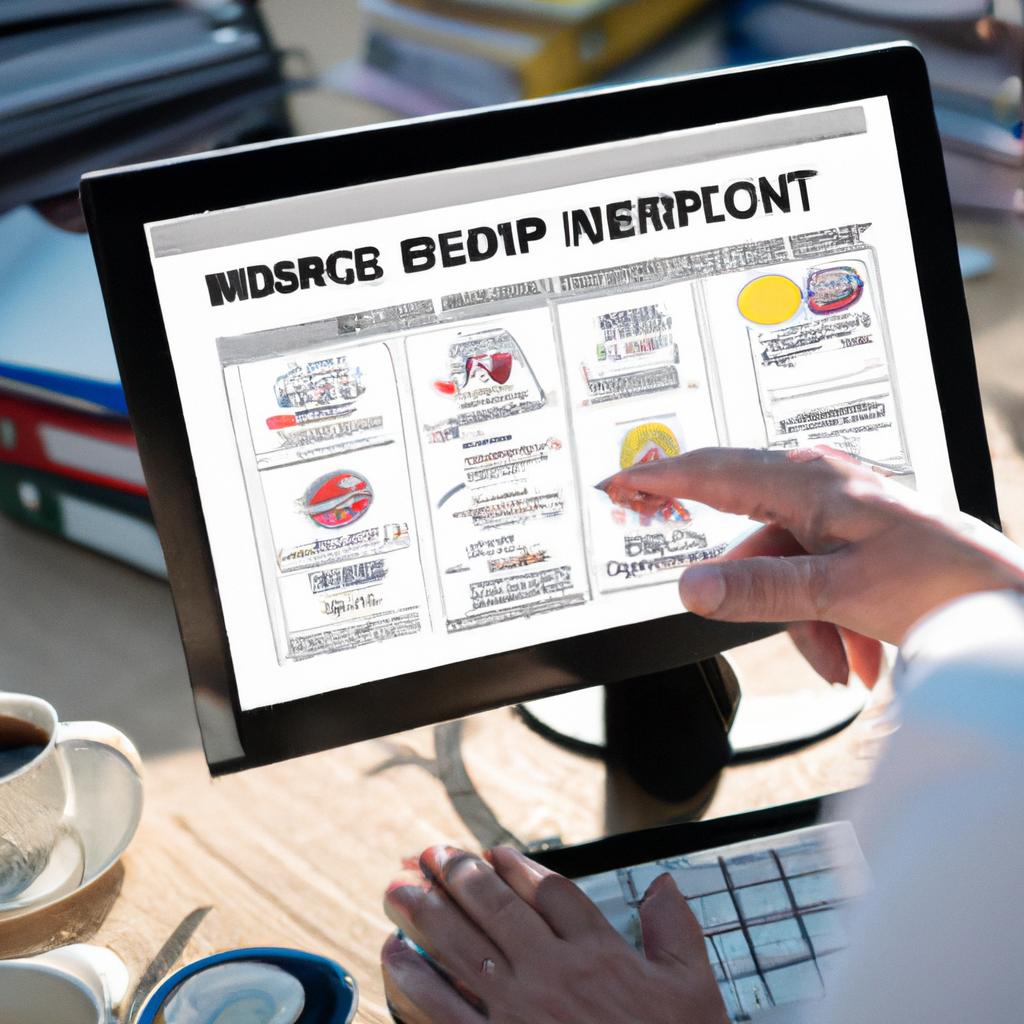How to Use ERP for Better HR Management
As businesses grow, the need for efficient and effective HR management becomes increasingly crucial. One way to streamline HR processes and improve overall management is through the use of Enterprise Resource Planning (ERP) software.
What is ERP?
ERP is a software solution that enables businesses to integrate various departments, such as finance, supply chain management, and HR, into one platform. This integration allows for more efficient and effective management of business processes, resulting in cost savings and increased productivity.
The Importance of HR Management
HR management is a critical component of any business, as it involves managing the most valuable asset: the employees. Effective HR management involves hiring and training employees, managing employee data, and providing support for HR-related issues. Without proper HR management, businesses can struggle to retain employees, resulting in high turnover rates and decreased productivity.
In the next section, we will discuss the benefits of using ERP for HR management.
Benefits of ERP for HR Management

Incorporating ERP software into HR management can bring numerous benefits to the business. Here are some of the advantages of using ERP for HR management:
Streamlined HR Processes
ERP software can help to streamline HR processes by automating manual tasks such as employee data entry, tracking employee performance, and generating reports. This automation frees up HR staff to focus on more strategic initiatives, such as employee engagement and retention.
Improved Accuracy
Manual data entry can lead to errors and inconsistencies. By using ERP software for HR management, businesses can improve the accuracy of employee records and data. This accuracy can help to ensure compliance with legal and regulatory requirements, such as labor laws and tax regulations.
Better Data Management
ERP software can help to manage employee data more efficiently. With ERP, businesses can consolidate employee data and easily access it when needed. This centralized data can help to identify trends and patterns in employee behavior, which can be used to make informed decisions about HR strategy.
Enhanced Employee Experience
By using ERP software for HR management, businesses can provide employees with a better experience. Employees can access their data, such as pay stubs and time off requests, through a self-service portal, reducing the need for HR staff intervention. This self-service feature can contribute to higher employee satisfaction and engagement.
In the next section, we will discuss the key features of ERP for HR management.
Key Features of ERP for HR Management

Implementing an ERP solution for HR management offers a range of features that improve HR processes and enhance employee experience. Here are some key features of ERP for HR management:
Employee Information Management
One of the most significant benefits of using ERP for HR management is the ability to manage employee data more efficiently. Through an integrated platform, HR managers can access employee data easily, including information related to job history, performance, and compensation. This feature allows for more effective decision-making when it comes to promotions, performance reviews, and other HR-related processes.
Performance Management
ERP solutions for HR management offer a range of performance management features, including goal-setting, performance tracking, and feedback management. These tools enable HR managers to assess employee performance more effectively, identify areas for improvement, and provide feedback to employees. This feature enhances employee engagement and motivation, leading to higher productivity and better business results.
Recruitment and Onboarding
ERP solutions for HR also include features that streamline the recruitment and onboarding processes. These features enable HR managers to manage the entire recruitment process, from posting job openings to screening candidates and scheduling interviews. Additionally, ERP solutions for HR management also offer onboarding features that enable new employees to complete necessary paperwork and training more efficiently.
Payroll and Benefits Administration
ERP solutions for HR management also offer features that streamline payroll and benefits administration. This feature enables HR managers to manage employee compensation and benefits more efficiently, reducing the risk of errors and ensuring compliance with regulatory requirements. By automating these processes, HR managers can save time and reduce administrative costs.
In the next section, we will discuss best practices for implementing ERP for HR management.
Best Practices for Implementing ERP for HR Management
Implementing ERP for HR management can be a complex process, but following best practices can help ensure a successful implementation. Here are some best practices to consider when implementing ERP for HR management:
Define Objectives and Goals
Before implementing ERP for HR management, it’s important to define clear objectives and goals. This involves identifying the specific HR processes that need improvement and determining how ERP can help streamline these processes. Defining clear objectives and goals will help ensure that the implementation process is focused and efficient.
Engage Stakeholders
Engaging stakeholders throughout the ERP implementation process is crucial for success. This includes involving HR staff in the decision-making process and providing regular updates on the implementation progress. Engaging stakeholders will help ensure that the implementation aligns with the needs of the HR department and that employees are prepared for any changes resulting from the implementation.
Ensure Data Accuracy and Quality
ERP relies on accurate and high-quality data to function properly, so it’s essential to ensure that HR data is accurate and consistent. This involves conducting a thorough data audit and cleaning up any inconsistencies or errors. Ensuring data accuracy and quality will help prevent any issues that could arise from inaccurate or incomplete data.
Train Employees
ERP implementation involves a significant change to HR processes, so it’s important to provide adequate training to employees. This includes training on how to use the ERP system, as well as any changes to HR processes resulting from the implementation. Providing comprehensive training will help ensure that employees can effectively use the ERP system and that the implementation is successful.
Case Studies: Successful Implementation of ERP for HR Management
Company X
Company X, a large manufacturing company, was struggling with managing their HR processes. They had multiple HR systems in place, resulting in data discrepancies and inefficiencies. After implementing an ERP solution, they were able to streamline their HR processes, resulting in a 50% reduction in the time spent on administrative tasks. The ERP solution also allowed for better data management, resulting in improved accuracy and reporting. Employees also benefited from the self-service portal, where they could access their personal information and manage their benefits.
Company Y
Company Y, a medium-sized technology company, was experiencing high turnover rates due to poor HR management. They implemented an ERP solution to improve their recruitment and onboarding processes and to provide better support for their employees. With the new ERP solution in place, they were able to reduce their time-to-hire by 30% and improve their onboarding process, resulting in increased employee satisfaction. The ERP solution also included a performance management module, allowing managers to set goals and track employee progress, resulting in increased productivity.
Company Z
Company Z, a small retail business, was struggling with managing their payroll and benefits administration. They implemented an ERP solution to automate their payroll processes, resulting in a 40% reduction in payroll processing time. The ERP solution also allowed for easier benefits administration, resulting in increased employee satisfaction and retention. With the ERP solution in place, the HR team was able to focus on more strategic initiatives, resulting in overall business growth.
These case studies demonstrate the benefits of implementing ERP for HR management, resulting in streamlined processes, increased employee satisfaction, and overall business growth.
Conclusion
In conclusion, using ERP for HR management can be a game-changer for businesses of all sizes. By streamlining HR processes, improving data accuracy, and enhancing the employee experience, businesses can save time and money while increasing productivity and employee satisfaction.
To make the most out of ERP for HR management, it is essential to define clear objectives and engage stakeholders from the beginning. Ensuring data accuracy and quality and providing proper training for employees are also critical steps in implementing ERP successfully.
Many businesses have already seen the benefits of implementing ERP for HR management, and the trend is only set to continue. By leveraging the power of technology, businesses can stay ahead of the competition and ensure their HR processes are efficient and effective.

Comments are closed.